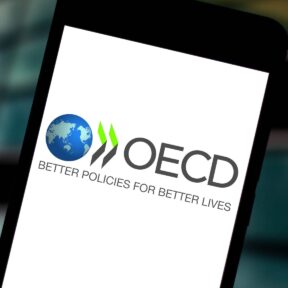OECD netFWD Team and INCAF
Philanthropy in Fragile and Conflict-affected Settings
16h00 - 17h30
onlineSwissFoundations vernetzt Stiftungen thematisch in Form von Arbeitskreisen und Roundtables. Diese sind Plattformen für konkreten Erfahrungsaustausch, dienen aber auch als Gefässe zur Beantwortung aktueller Fragestellungen. Arbeitskreise und Roundtables stehen exklusiv Mitgliedstiftungen offen.
SchliessenMit über 13‘000 gemeinnützigen Stiftungen und einem Stiftungsvermögen von rund CHF 100 Milliarden nimmt der Schweizer Stiftungsstandort einen globalen Spitzenplatz ein. Als unabhängige Kraft stärken Stiftungen die Pluralität in unserem Land und tragen massgeblich zur gesellschaftlichen Vielfalt und Innovation bei.
SchliessenStiftungsführung braucht relevantes, konkretes und praxisnahes Wissen. Gemeinsam mit Mitgliedern und Partnern entwickelt SwissFoundations Standards und praktische Instrumente für die Gründung und Führung gemeinnütziger Förderstiftungen in der Schweiz.
Schliessen2001 als Gemeinschaftsinitiative von Stiftungen gegründet, ist SwissFoundations der wichtigste Verband gemeinnütziger Förderstiftungen in der Schweiz.
Schliessen
OECD netFWD Team and INCAF
The OECD Network of Foundations Working for Development (netFWD), the OECD Centre on Philanthropy, and the OECD International Network on Conflict and Fragility (INCAF) are pleased to invite you to the online policy dialogue on Philanthropy in Fragile and Conflict-affected Settings that will take place on May 12th, 2022, 16h00-17h30 CET.
This closed-door online discussion will bring together leaders in philanthropy, Official Development Assistance (ODA) donors and development experts to share lessons, good practice and pioneering approaches on how philanthropy can be more effective in fragile contexts, and better aligned and coordinated with the ODA communities and host governments.
The discussion will explore:
Confirmed speakers include:
Co-operation Directorate
Register here to join the discussion!
Newsletter
Bleiben Sie über die Stiftungswelt im Bilde! Wir berichten über aktuelle Debatten und Diskurse, reflektieren politisch-rechtliche Entwicklungen und weisen Sie auf Publikationen und Weiterbildungen hin.